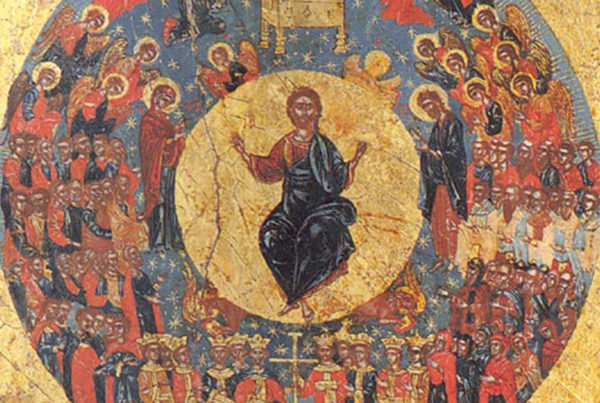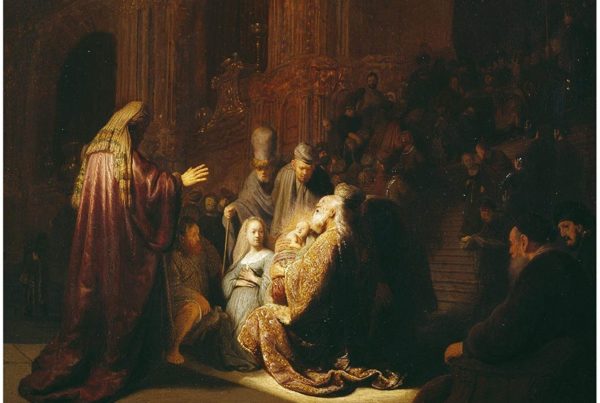Advent begins this weekend, marking the end of “ordinary time” in the church calendar and beginning the long and beautiful journey deep into the heart of our faith–the realities of Incarnation, Crucifixion, and Resurrection. I’m stoked.
One of the reasons that I’m stoked is that at Bloom, when the great liturgical cycles begin, typically we start pressing into the Lectionary as a platform and context for our preaching and worship.
As a preacher in particular, I love the Lectionary. I love reflecting on the readings, preaching from it, and I love love love what that does for us as a community–it calls us to read and hear the whole of Scripture, not just the parts that feel good to us or fit our idealogical agenda in the moment.
Growing up in charismatic and evangelical contexts, the preaching calendar, and thus the life of the church, was largely determined by the subjectivities of the lead pastor. Don’t get me wrong–there was and is a lot of good in this. The pastor, sensitive to the Holy Spirit, can design teaching sequences that fit the needs of the congregation and/or shape it in a fresh way for vision and mission. I get that, love it, and certainly do embrace it in my own ministry of the Word. It is a vital way we shepherd.
And yet… if all the local church has is a steady diet of whatever it is the preacher happens to be passionate about in the moment, I contend that both the preacher and the congregation will be impoverished, for both will be determined not by the full canon of Scripture but by whatever “canon” exists in the subjectivities of the preacher. What makes it into the local church will only be whatever passes through the preacher’s ideological grid, and Paul’s declaration to the Ephesian elders in Acts 20 that he did not hesitate to proclaim to them the whole counsel of God (v 27) will go unfulfilled. Our hearts, minds, imaginations, and the language we use to speak of what God is doing in the world will suffer.
Preaching from the lectionary, letting these odd and angular and “wholly other” texts of Scripture speak and have a voice in the church, forces us preachers to confront our ideological biases as we submit our preaching to the faith of the Church (capital “C”), and it helps prevent the particular churches we pastor from drifting away from the loving nurture of Mama Church. Perhaps we’re uncomfortable with the idea of God’s wrath. Too bad. The Church says we’ve got to preach from Amos. Perhaps we’ve grown uncomfortable with the cross. Too bad. The Church tells us we’ve got to preach from Paul. Or perhaps all we ever want to preach are happy-clappy messages of positivity and hope. Too bad. The Church is going to drag us to Gethsemane and Golgotha whether we like it or not.
You see, there’s a chastening here, a disciplining of the local church’s imagination and of the preacher’s tongue. And that’s what I love about it. It keeps us whole, sane, balanced, and submitted. Rowan Williams writes:
There is a real passion to make sure that nothing but the scriptural text shapes and decides what the common language of Christians worshipping and thinking should be, and all historical traditions are re-evaluated in this light. [And] there is an equal insistence that the act of common worship should be both a celebration of the whole meaning of Scripture and a gateway to new life through the retelling and re-hearing of the scriptural narrative. (See more here)
Yes. Like the ancient Jews exiled in Babylon, we are a people in need of knowing our “mother tongue”–the Scriptural story–in order to hang onto our identity in a thoroughly disorienting and identity-destroying culture. And if we are not capable of learning that “mother tongue” because the preacher’s ideological bias creates a filter through which only bits and pieces of Scripture can slip through, we will be seriously impoverished. It is not the preacher’s job to protect the people from the Bible, but rather to welcome them into the beautiful, soul-stirring, often disorienting, always identity-giving world it creates. Failing this, we have abdicated our calling be an extension of the total nurture of Mama Church by substituting our pet issues for her loving counsel.
So, Advent begins. And for the time being we’ll be putting down whatever teaching series we’re working on at Bloom in order to join up with the Church in the telling and retelling our Story, which is, as Rowan Williams teaches, the gateway to new life.
Grace our journey, Advent God.
Amen.




I wonder if the lectionary helps shift the emphasis away from preaching-as-center and toward Word and Sacrament. Is preaching meant to be the central performance act? Or is the role of the preacher that of a guide, a shepherd, an usher of the liturgy’s procession–of anyman’s pressing into the Cross, then out into the the world? Not just Charismatic or Evangelical, but the Altar’s removal (and thus the Sanctuary itself?) and the podium’s positioning at center center stage is a broader Western Enlightenment’s development. From happy-clappy to self-help to more, there seems to be a deep desire to bypass Altar and Cross in Christian worship. Perhaps many ways of preaching facilitate just that. But it should be understood as something rather distinct from either the Work of the People or a Sacred Office.
Couldn’t agree more, Gary. You should read the whole article by Rowan Williams.
No. I don’t read much on these things anymore. Despite my response comment, would rather not think about such things so I can just go to church without too much thought about it.
Haha. Fair enough. Blessings…